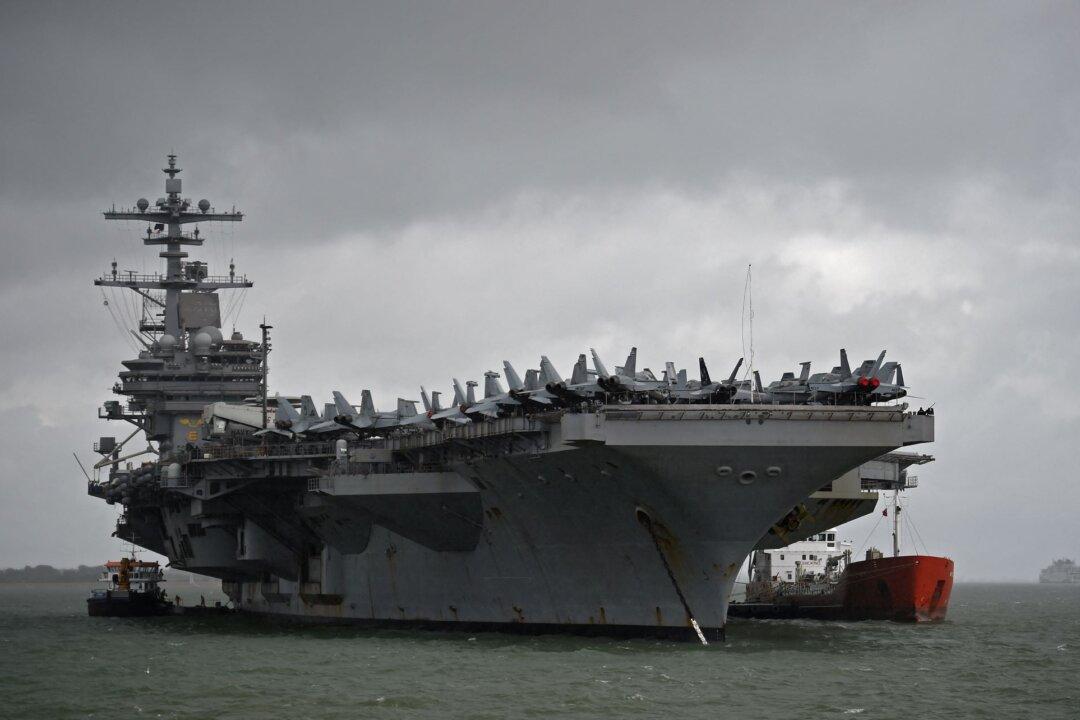WASHINGTON—The United States has decided to extend the deployment of the George H.W. Bush carrier strike group to provide options to policymakers after last week’s deadly attacks in Syria by Iran-backed forces, U.S. military officials said on Friday.
The decision likely means the Bush strike group and its more than 5,000 U.S. forces, which are now in the European Command operational area, will not be returning to home port in the United States on schedule.





